Femia > Health Library > Pregnancy > Pregnancy week by week > 1 Week pregnant: Early signs, body changes, and what to expect
1 Week pregnant: Early signs, body changes, and what to expect
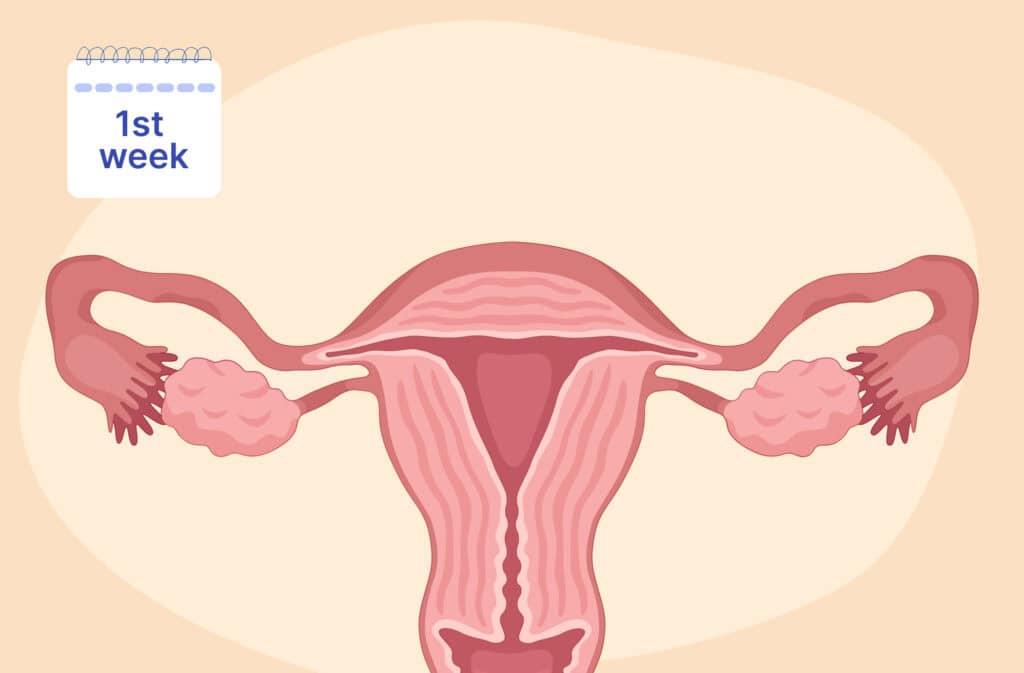
- Updated Mar 4, 2025
- Published
CRAFTED BY HUMAN
Crafted by human At Femia, we provide accurate and up-to-date information at every stage of your journey, from trying to conceive, pregnancy and postnatal support. All content is created by a real person based on in-depth research and own professional experience. Femia ensures that you will receive expert advice, strict accuracy and a personalized approach from our authors/medical experts. Learn more about our editorial policy.
FACT CHECKED
Fact checked At Femia Health, we maintain the highest standards of editorial excellence in delivering content focused on helping you conceive, guiding you through pregnancy, and supporting you postpartum. Explore our content review principles to learn how we ensure the accuracy and quality of our health and lifestyle tips for every stage of your journey.
In obstetric calculations, calling the first week of the menstrual cycle the first week of pregnancy is standard practice. When someone is 1 week pregnant, this term refers to the first week after their last menstrual period, before actual conception. During this stage, symptoms may feel like typical PMS symptoms, but no noticeable pregnancy signs have appeared. The body is simply preparing for ovulation, which allows for potential fertilization.
The first week of pregnancy marks the very beginning of an exciting journey, though it’s often too early to notice specific pregnancy signs. It’s important to understand that there are different ways to calculate gestational age. Obstetric gestational age begins on the first day of the last menstrual period (LMP). Therefore, the first week of the menstrual cycle is technically counted as the first week of pregnancy, even though in reality, pregnancy hasn’t occurred yet because ovulation and possible fertilization will only happen in about two weeks.
On the other hand, biological gestational age starts from the moment of fertilization of the egg. In this context, talking about pregnancy in the first week of the cycle is incorrect, as fertilization has not yet taken place.
This early stage is crucial, as the body is preparing for ovulation and potential fertilization. For those trying to conceive, understanding what happens during this week can help set realistic expectations and create a foundation for healthy pregnancy habits.
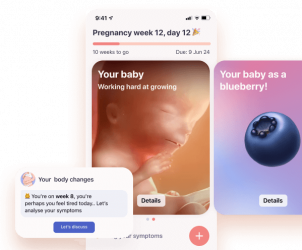
1-week pregnant symptoms
The first week of pregnancy, according to obstetric calculations, begins with the first day of your last menstrual period (LMP). At this time, the body is shedding the endometrium—the lining of the uterus—through menstrual bleeding. Hormone levels of estrogen and progesterone are at their lowest, and the development of ovarian follicles is just starting, but ovulation is still weeks away.
Since conception hasn’t occurred yet, there are no pregnancy-specific symptoms during this week. Instead, any symptoms experienced are related to the normal menstrual cycle. Common experiences during this time include:
- Menstrual bleeding: The primary symptom as the body sheds the uterine lining.
- Menstrual cramps: Cramping in the lower abdomen or back due to uterine contractions.
- Fatigue: Feeling tired is common due to hormonal fluctuations and blood loss.
- Mood changes: Hormone levels can affect emotions, leading to mood swings or irritability.
It’s important to understand that this week is part of the physiological menstrual process, not associated with ovulation or early pregnancy symptoms. The body is resetting and preparing for the next cycle, where ovulation and potential fertilization may occur. For those trying to conceive, maintaining healthy habits during this time can help create a supportive environment for a future pregnancy. Using a pregnancy app can help you track early pregnancy symptoms.
👉Find out more: Your pregnancy checklist: Week-by-week guide to preparing for baby
Your body at 1 week pregnant
During this early phase, the body is in preparation mode, setting up for ovulation. There are no physical changes from pregnancy itself, as fertilization and implantation have not yet occurred. However, hormone levels are gradually shifting, creating an ideal environment for potential fertilization and the journey of pregnancy.
The start of a new cycle
At week 1, your body is starting fresh with a brand-new menstrual cycle. The shedding of your uterine lining marks the end of your last cycle, making way for the beginning of the next one. While fertilization hasn’t occurred yet, your body is setting the stage for what comes next.
Hormones at play
During this phase, your body is controlled by a series of hormones working together. Follicle-stimulating hormone (FSH) starts by stimulating the follicles in your ovaries to mature. As the follicles grow, they release estrogen, which helps prepare the uterus by thickening its lining in anticipation of a potential pregnancy. As estrogen peaks, it triggers a surge in luteinizing hormone (LH), leading to ovulation — the release of a mature egg from its follicle.
Preparing for ovulation
Around day 14 of a typical cycle, ovulation occurs — the egg bursts through the ovarian wall and is now ready to meet sperm for fertilization. Although fertilization hasn’t yet occurred at this point, your body is preparing for this crucial step. If pregnancy doesn’t happen this cycle, it’s not a cause for concern. On average, healthy couples have a 25-30% chance of conception each cycle.
Take care of your body
While you aren’t technically pregnant yet, it’s never too early to prepare. Begin taking prenatal vitamins, avoid alcohol and smoking, and focus on a healthy diet and exercise routine. These early actions can set you up for the best chance of success when the time comes.
Boosting fertility
If you’re actively trying to conceive, consider adjusting your environment to support fertility. Avoid excessive heat, like from electric blankets or heating pads, which can negatively affect sperm production. Reducing heat exposure, particularly to the testes, can improve sperm quality. Additionally, refraining from oral sex and certain lubricants can also help sperm thrive during conception efforts.
1-week pregnant belly
At 1 week, there are no visible changes to the belly or abdomen. The uterus is still preparing for ovulation, and noticeable growth will not occur until later in pregnancy. Any bloating or discomfort is more likely due to menstrual changes in the body rather than pregnancy.
Baby development at 1 week pregnancy
During the first week, there’s technically no development of a baby. Since ovulation and conception haven’t occurred, there’s no fertilized egg, embryo, or fetus. This week serves as a preparatory period in the reproductive cycle.
👉Find out more:
2 Weeks pregnant: What to expect in your body
3 Weeks pregnant: Symptoms, body changes, and fetal development
1-week ultrasound
An ultrasound is generally not conducted this early, as pregnancy is not yet detectable. Ultrasounds are typically scheduled after a missed period, often between weeks 4-5, to confirm pregnancy, visualize the gestational sac, and detect a heartbeat.
Fetus size at 1 week
There is no fetal size or measurable embryo at 1 week, as fertilization hasn’t happened. Once implantation and cell division occur in the following weeks, fetal growth can be measured, and developmental milestones tracked.

Tips for week 1 pregnant
Boost your folate intake
During this critical early phase of pregnancy preparation, it’s essential to get plenty of folic acid. Aim for 400 to 600 micrograms daily, which can come from your prenatal vitamin as well as folate-rich foods. Folic acid is vital for reducing the risk of birth defects and promoting overall health for both you and your baby.
Schedule a doctor's visit
Although you’re not technically pregnant yet, it’s a good idea to see your healthcare provider. This visit will focus on your overall health, including dietary habits, medications, family history, and fertility status. For women over 35 or those with potential risk factors, fertility testing may also be recommended.
Know your fertility window
Conception happens during a short window each month, typically around day 14 of a 28-day cycle. For healthy couples, there’s about a 25-30% chance of conception each month. Understanding your cycle and ovulation can help predict when you’ll be most fertile.
Buy a pregnancy test
While you may not need it immediately, purchasing a pregnancy test now can prepare you for when the time comes. Whether you opt for an inexpensive or premium test, both are accurate when used properly, measuring the hormone hCG to confirm pregnancy.
Watch for early pregnancy signs
Even before you take a pregnancy test, you might notice early signs like tender breasts, frequent urination, or changes in your sense of smell. Keep an eye out for subtle symptoms that could indicate you’re expecting, but remember that some women don’t experience these signs until later.
Consult about medications
If you’re currently taking any medication—whether prescription, over-the-counter, or herbal—check with your doctor about their safety during pregnancy. Some medications, especially herbal remedies, can be harmful during pregnancy, so it’s best to get advice before continuing or starting new treatments.
Monitor ovulation symptoms
Track signs of ovulation, such as increased cervical mucus, changes in your basal body temperature, or mild cramps. Ovulation typically occurs around the middle of your cycle, and using an ovulation predictor kit can help confirm the best time for conception. Keep track of these symptoms to better understand your fertility cycle.
Questions from the Femia community
How do I discuss roles, expectations, and shared participation in pregnancy preparation with my partner?
Open communication is essential when preparing for pregnancy. Set aside dedicated time to talk with your partner about your expectations, concerns, and the roles each of you will play. Discuss topics like attending medical appointments together, making lifestyle changes, and providing emotional support. Be honest and listen actively to each other to ensure that both partners feel involved and committed to the journey ahead.
How can I increase my chances of pregnancy if I’m trying to conceive at 1 week?
Tracking ovulation, eating a balanced diet, taking fertility supplements, managing stress, and having regular, timed intercourse during fertile windows can increase the chances of conception.
The bottom line
At 1 week pregnant, according to obstetric calculations, your body begins a new menstrual cycle and prepares for ovulation. While most symptoms are related to the menstrual cycle rather than pregnancy, this is an ideal time to prepare and plan for your pregnancy. It’s an opportunity to analyze your health, assess any risks, and discuss the next steps with your doctor and partner to help make your future pregnancy safer and more comfortable. For those trying to conceive, tracking ovulation, maintaining a healthy lifestyle, and understanding early cycle changes can support your efforts in the upcoming weeks.
References
- “Pregnancy Symptoms: Week 1.” Medical News Today, 25 Jan. 2023, www.medicalnewstoday.com/articles/pregnancy-symptoms-week-1.
- “Your Pregnancy and Baby Guide: Weeks 1 to 3.” NHS, www.nhs.uk/pregnancy/week-by-week/1-to-12/1-2-3-weeks/.
- “1 Week Pregnant: Symptoms & What to Expect.” The Bump, www.thebump.com/pregnancy-week-by-week/1-weeks-pregnant.
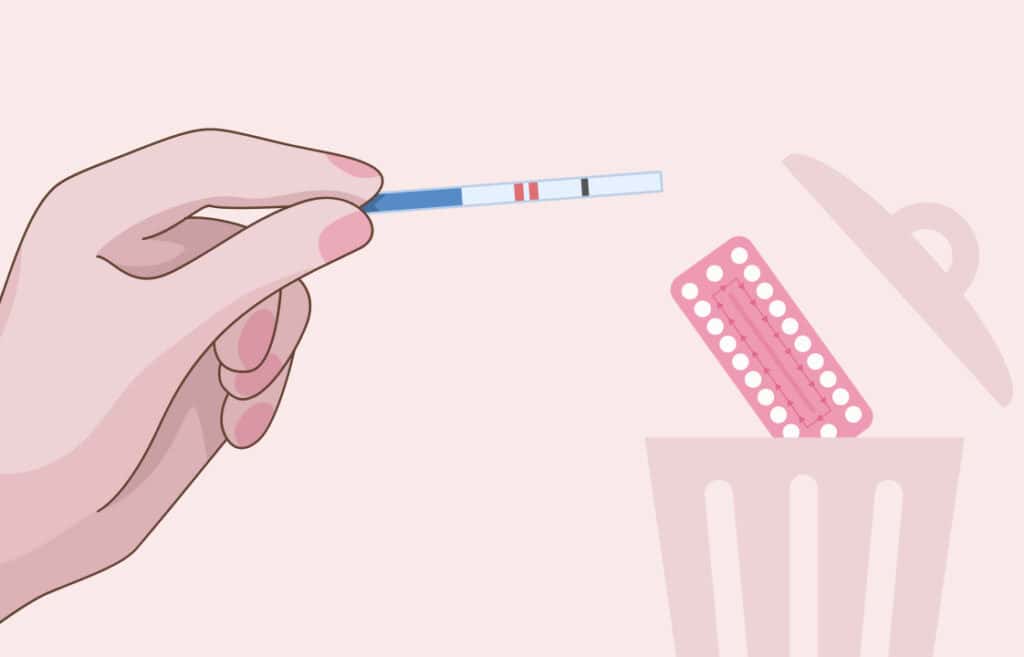
Find out how quickly you will ovulate if you have already stopped taking oral contraceptives and what can affect you greatly while waiting for a fertile window.
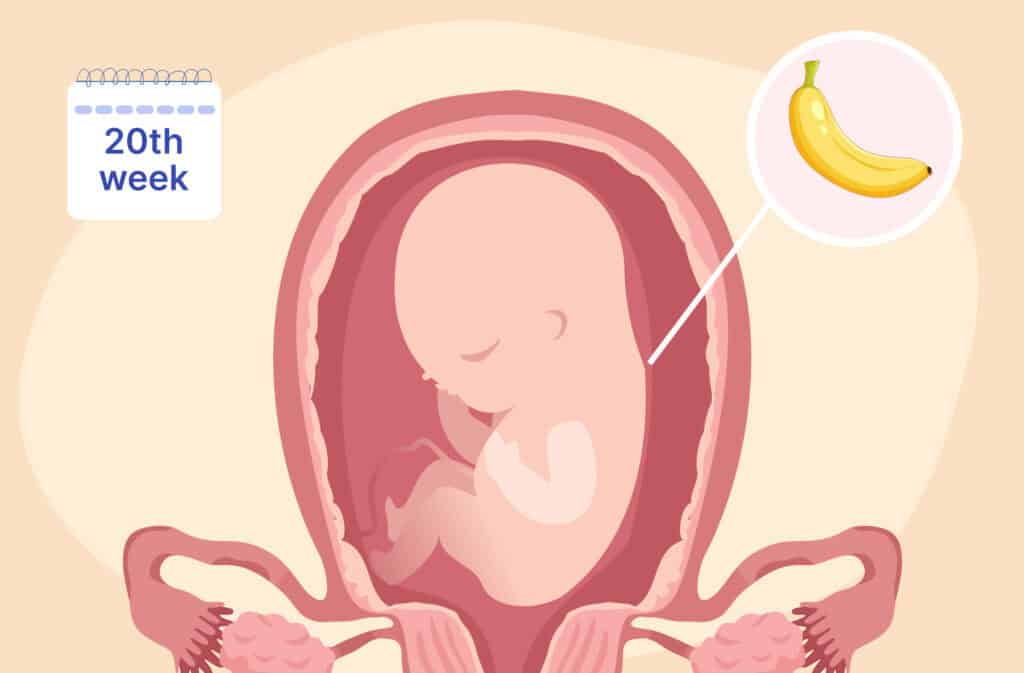
At 20 weeks pregnant, you’re halfway through your journey, with your baby growing quickly. Discover what to expect, symptoms, and self-care tips for week 20.
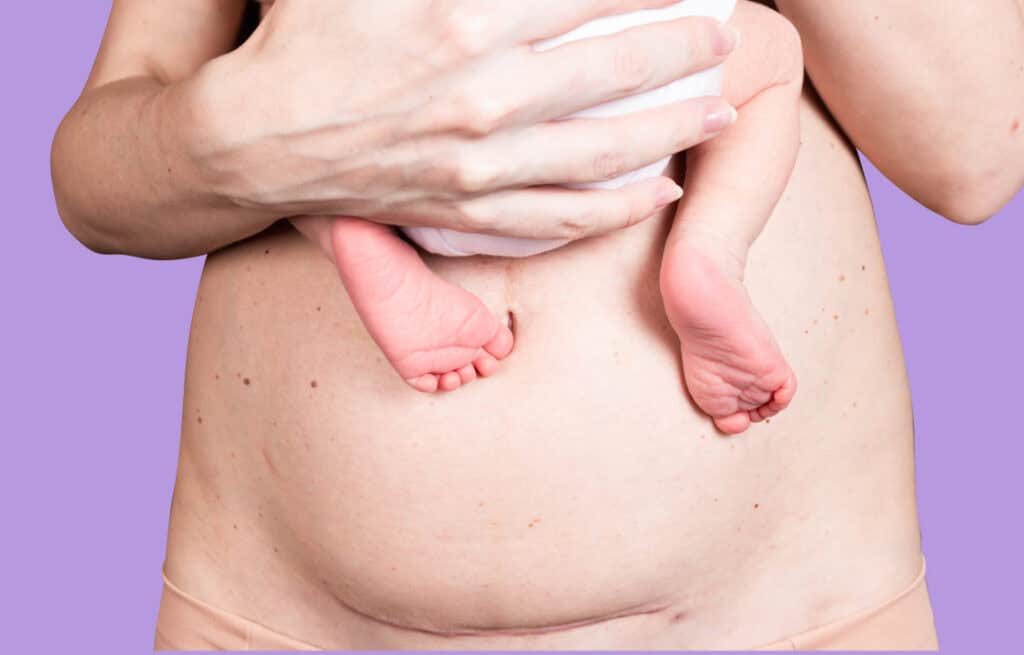
If you’re self-conscious about your postpartum belly, try these tips for a flat tummy after pregnancy. Find out how to lose postpartum fat.

